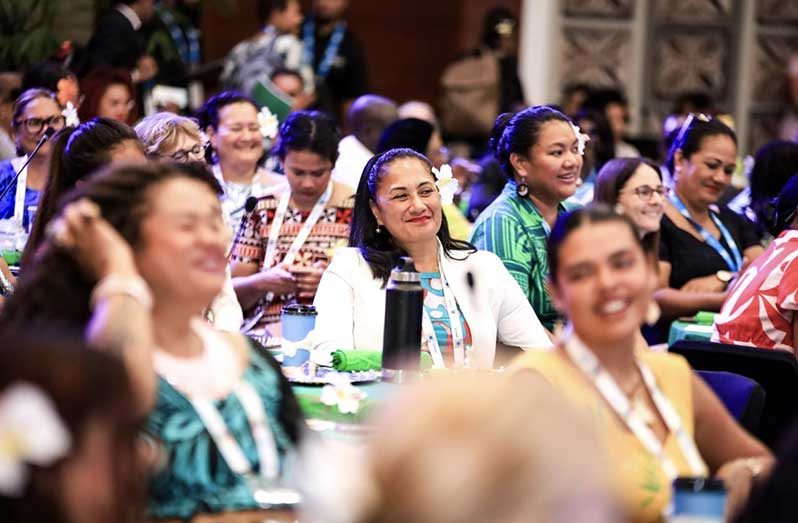COMMONWEALTH leaders are being called upon to intensify their efforts in dismantling barriers and biases that continue to hinder the progress of women and girls across the 56 member states. This urgent plea stems from a report reflecting the voices of more than 400 delegates, including prime ministers, ministers, women rights advocates, and business leaders, who participated in the Commonwealth Women’s Forum in Apia, Samoa, from October 21 to 22, 2024.
The report, set to be presented to Commonwealth leaders this week, calls for immediate action to elevate the status of women in government, business, and society. Delegates highlighted key areas for reform, including the need for increased protection from gender-based violence, policies to promote women in leadership, expanded economic opportunities, and investments in women-led climate solutions.
The slow progress towards gender equality was underscored by a recent United Nations report, which warns that at the current rate, it could take 137 years to eradicate poverty among women and achieve gender parity in parliaments by 2063. Delegates at the forum stressed the urgency for bespoke policies to tackle overlapping forms of discrimination—such as those based on disability, age, and identity—to ensure that all women and girls can live with dignity and safety.
At the closing session, Commonwealth Deputy Secretary-General, Dr. Arjoon Suddhoo, acknowledged the significant delays in achieving gender equality. “None of the Sustainable Development Goal 5 targets for gender equality and women’s empowerment are on track. This must change now. There can be no more delays,” Suddhoo declared. He further emphasised that the recommendations from the forum will guide the 56 Commonwealth nations in taking bold steps to ensure gender inequality is eradicated by 2030.
South Africa’s Deputy Minister of Women, Youth, and Persons with Disabilities, Mmapaseka Steve Letsike, delivered a passionate speech, stating, “Humanity is at war with its women, girls, and other vulnerable groups. This cannot be accepted as normal.” As a survivor of gender-based violence, Letsike called for sweeping changes, not only in laws and policies but also in societal attitudes, urging a collective effort to wage a war against gender-based violence.
Siliniu Lina Chang, President of the Samoa Victim Support Group, echoed this sentiment by sharing the haunting last words of a femicide victim who pleaded for the abuse to end with her. Chang advocated for practical solutions, including the need for trained medical staff, victim liaison officers, and safer court environments to better support women in need.
Tuvaluan Prime Minister, Feleti Penitala Teo, emphasised the importance of engaging men and boys in the fight for gender equality. “Men must be part of the conversation, not just as advocates but as active participants in dismantling the barriers faced by women. This is how we build a society that benefits everyone,” he stated.
Joleen Mataele, Vice-Chair of the Commonwealth Equality Network, highlighted the role of education in addressing exclusion. “When climate disasters hit, evacuation centres often refuse to accept us,” she said. Mataele stressed that education is key to raising awareness of the needs of marginalised groups, ensuring those needs are recognised and protected in future disaster response efforts.
The Commonwealth Women’s Forum, hosted in partnership with the Government of Samoa, serves as a pivotal moment in urging leaders to take stronger action toward achieving gender equality and empowering women and girls across the Commonwealth. As the report is delivered to leaders, the hope is that bold steps will be taken to ensure a more inclusive, equitable future for all.





.jpg)








